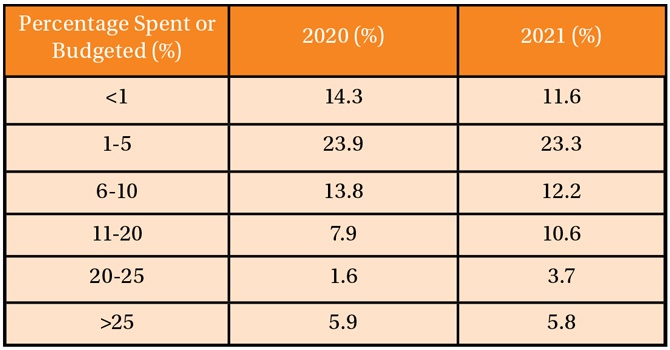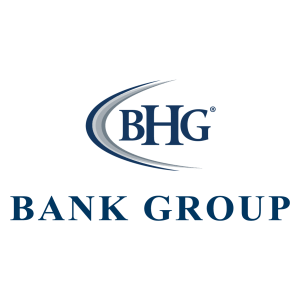The current financial industry is innovative, but as banking organizations have expanded their activities, they have also faced an increasingly complex regulatory environment. Plus, COVID-19 complications have exposed several high-profile compliance breakdowns.
Federal and state regulatory agencies, legislators, and the general public are working to protect banking customers like never before. They are rigorously examining consumer and small business banking customer practices and regulatory compliance performance.
Banking organizations understand that a heightened risk of compliance failure can result in litigation. Consequences may include damaged reputations, financial penalties, and regulatory constraints. Nobody wants that, but compliance has a price tag, and it isn’t cheap.
Kroll Institute commissions an annual study conducted by Duff & Phelps, a financial consultancy firm. The most recent study is called Global Regulatory Outlook 2021. It includes analysis based on survey results from 250 senior executives in the U.S., United Kingdom, Europe, China, and India. All respondents work in a broad range of businesses that provide financial services.
One fascinating graphic in the report was about compliance costs. A full 32.9% of the respondents did not know how much of their 2020 revenues went to regulatory compliance. Worse, 32.8% did not know how much they would be spending on regulatory compliance from 2021 revenues.
The remaining companies had a better idea about compliance costs, but they spent or planned to spend widely varying amounts of money.

For any company that spends more than a small percentage of its revenue on compliance, making sure compliance takes place is a big expense, but it is a core cost of doing business. You cannot be successful as a bank or financial services firm without implementing governance, risk, and effective regulatory compliance.
The report contains additional information, but one important conclusion concerns the pandemic. The Great Recession still affects finances more than 10 years later, and the COVID-19 pandemic will have long-lasting consequences, too. Therefore, community banks should expect to see a continuation of problems related to the pandemic. The accompanying regulatory risks are bigger for some companies than others; although 36.4% saw no significant effect, 62% percent reported effects they classified as significant (11.3%) or moderate (50.3%).
The biggest risk during the coming year will be volatility, according to 38.7% of the respondents. The second most popular pick, at 19%, was compliance. That’s almost one out of every five people.
Only 15% of the respondents expected the U.S. to add stricter financial regulations. The report notes that existing regulations could be more strictly enforced since two tough regulators — and veterans of the Great Recession — are in key spots: Rep. Maxine Waters is the U.S. House Committee on Financial Services Chair, and Gary Gensler, a former investment banker, has been the U.S. Securities and Exchange Commission Chair since April 17, 2021.
The report also includes the following:
- New York is the global financial leader, displacing London, but 64.1% think China will eventually be the next major financial hub.
- Environmental, social, and governance policies are increasingly important. Only 48% of those surveyed had comprehensive policies and procedures, but 6% will have something soon. Therefore, the number of firms with ESG policies will pass 50%.
Financial services organizations are heavily regulated to ensure consumer protection, transparent business dealings, and ethical marketplace conduct. Federal and state regulators constantly demand robust compliance departments and substantive policies and procedures with routine internal auditing, third-party due diligence, fraud monitoring and identification, and many other best business practices.
Community banks, like other financial organizations, need to comply with regulations. There’s a lot involved, and that might mean hiring outside expertise.
Risk Management Solutions Group (RMSG) is a wholly owned subsidiary of Bankers Healthcare Group (BHG). BHG is one of the largest U.S. community bank loan and product networks.
RMSG’s compliance consulting team helps financial institutions of all sizes solve their challenges and stay current on changing regulatory requirements, expectations, and industry practices. It has experts from private and public sectors, with a combined 500+ years of industry experience as commissioned examiners at all major supervising agencies, such as:
- The Consumer Financial Protection Bureau
- Office of the Comptroller of the Currency
- Office of Thrift Supervision
- Federal Deposit Insurance Corporation
- Federal Reserve Board
RMSG’s professionals offer regulatory compliance risk management services. When needed, they provide nontraditional products or multilayered and innovative consulting. General consumer compliance and specialized compliance areas include:
- Community Reinvestment Act Performance
- Fair Lending
- Bank Secrecy Act
- Anti-Money Laundering
RMSG’s advisers can minimize startup time in banking areas such as mortgage lending, credit cards, and commercial banking.
Whatever your compliance needs are, RMSG solutions can address complex concerns and satisfy regulatory requirements.

Matt Ondus
Enterprise Compliance Risk Officer
Bankers Healthcare Group
866.449.1092
mondus@riskmsg.com

To learn more about BHG, contact
Nellie Szczech
EVP, Institutional Relationships
315.383.9648
NellieAndriyanova@em.bhgbanks.com











